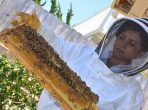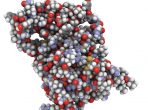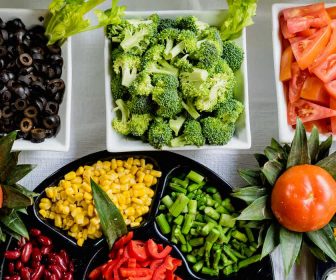Subscribe to the our newsletter to receive latest news straight to your inbox.
Six Dental Consideration Tips to Prevent Your Child from Getting Braces
How Can a Professional Assignment Help Contribute to Your Success as a Student?
Beneficial Herbs for Athletes
Reasons You Are Susceptible to Mental Problems
Easy Driving: 10 Options that Should be Included in Each Modern Car
4 Best Tips To Follow For Quick Lift Repair
What to See in Portugal? 5 Amazing Sights of Algarve
Why Parents Need to Maintain Traditional Values at Home?
How Alcohol Causes You To Gain Weight?
What should always be in a car on a long journey?
How to Prepare Children for the First Day of Preschool?
Health Benefits of Memory Foam Mattresses
What Should Be Included In The Home Inspection Checklist
How to Shape Emotionally Strong Boys?
Benefits of Yoga for Athletes
Negative Impacts of Air Pollution
Why Teenagers Become Rebellious So Easily?
Festival of Lights: Buy These Exciting Smartphones in 2019
TOP 5 MINI CARS For Solo Travelers
How Alcohol Affects Athletes?
Luxury Driving: 6 Chic Premium Cars to Feel Like a Celebrity
Tips on How To Buy The Right Refrigerator For Yourself
How Aging Athletes Can Stay in Shape?
How To Choose The Best Synthetic Grass For Your Garden
How Digital Marketing Company Can Help Your Business
Things You Should Know About Muscle Brain
Long and Spacious: 5 Most Luxurious Estate Cars
How Parents Can Gain Respect From Children?
How To Handle The Last Minute Moving – Helpful Tips
How Sex Can Improve Your Period & How to Do It Better
How to Prevent Regression on Autistic Children?
The World of Cars: 10 Amazing Modern Innovations
SEVEN STRATEGIES TO IMPROVE YOUR WRITING SKILLS
Six best life hacks for the motorists
Health Risks of X-Ray Scans
Benefits and Risks of Sunlight
Seven Things to Do When Visiting a Sick Person
Georgia Cabins With A Water View Are Like A Home Away From Home
Importance of Protein and Vitamin D for Athletes
Why Teenagers Want to Be Loved?
How Athletes Can Recover From Knee Replacement Surgery?
TOP 7 Ways to Become BETTER DRIVER!
Benefits of HGH for Athletes
How to Price Your Car? | Helpful Guidelines
Travel Medical Insurance: All the basics you need to know
How to Make Children Perform Better at School?
These Habits May Be Making Your Period Worse
Benefits of Coffee for Professional Athletes
HOW DO I PREPARE FOR MY FIRST YEAR OF LAW SCHOOL?
What to Do When Children Misbehave?
Things worth Considering for How to get into Digital Marketing
5 Best Way To Find House Cleaning Services
3 Ways to Improve Your Body Positivity
Seven Ways to Become Productive Parents
The Economic System of the United States of America
How to Control The Way Children Use the Internet?
Ways to Survive a Hot Summer Day
Five Marketing Tips For Your Business In 2023
Men, Can These 7 Intimacy Tips Save Your Sex Life?
Believe It or Not: 10 Myths on Studying in the USA
Common Types of Childhood Anxiety
How Athletes Should Deal With Anxiety
Places in Calgary You CANNOT SEE Without a Car
Reasons Children Become Fussy Eaters
How to Make an Effective Parenting Plan?

How Parents Should Deal With Fussy Eaters At Home?
All family members should eat varied and healthy diet. Proper combinations of vitamins, minerals and other nutritious substances could provide a balance to ensure our health. Food can be seen as a window of opportunity to maintain our quality of life. Healthy babies are born to healthy mothers. However, toddlers and young children often have…

All family members should eat varied and healthy diet. Proper combinations of vitamins, minerals and other nutritious substances could provide a balance to ensure our health. Food can be seen as a window of opportunity to maintain our quality of life. Healthy babies are born to healthy mothers. However, toddlers and young children often have eating problems. After being breastfed, young children will need to get very healthy diet. If toddlers start to develop into fussy eaters, it is important for parents to start taking the real steps. Here are things that they should do:
- Don’t rely on puree: Find out when children could start eating solid food. Consult with paediatrician and child nutritionists to know when children could start eating real food. Solid food is generally taste better than puree, due to more intact flavour and better texture. If children start to eat solid foods, it is likely that they will be ready to eat more types of foods. They will be glad to try to taste the flavour of each individual fruit. This would be a new experience for them, because mixed fruit juice tends to have confusing flavour. Children could also be given wholegrains, such as quinoa, amaranth and couscous. Even if toddlers still have undeveloped teeth, they can still eat mashed foods, which still have texture compared to puree.
- Allow them to get messy: Children can’t eat neatly and being messy is actually part of the learning process. When you give toddlers diced banana or avocado, it is likely that it will spill and causing a mess. You shouldn’t rush it and try to instruct children calmly how to reduce mess gradually. Make sure that the learning process is fun and exciting. Make any milestone as an achievement that can be celebrated, no matter how trivial and small it is. For the learning process, getting messy is always a good thing for your children.
- Introduce simpler, individual tastes: Children often refuse to eat puree and mixed fruit juice, because they taste uninteresting. In reality, simple taste could be more interesting. Young children love to explore new things and they will be glad to acquire new taste. As an example, the subtle taste of avocado can be introduced to children. Add a bit of sugar or honey, then ask whether children enjoy it. When you add a new element to the food, make sure that you ask your children first. After your children understand each individual taste from different kinds of food, they will voluntarily experiment. Allow them to be creative in mixing taste, until they come up with something that they really like.
Limit milk intake: Milk is very nutritious, but it doesn’t give children a complete nutrition. Many parents rely too much on breastfeeding or formula milk. If you can start to reduce milk consumption, then you start to do that. Introduce something tasty that provide children with plenty of nutritional values. As children grow older, milk should become only complimentary foods.
Recommended Articles
-
Seven Things to Do When Visiting a Sick Person
5 years ago9770 views -
How to Laser Target Your Ideal Audience Using Market Research?
2 years ago3110 views -
Can Life After Brexit Be An Eco-Friendly One For UK Businesses?
1 year ago1213 views -
How Aging Athletes Can Stay in Shape?
5 years ago5928 views -
How to Make Children Perform Better at School?
5 years ago5869 views -
First-Time Home Owner: Affordable Interior Design Ideas
7 months ago1257 views
Leave a Reply
You must be logged in to post a comment.













































































1ballast
3grandchild
research writing services https://professionaldissertationwriting.org/
premium dissertation writing service https://helpwithdissertationwritinglondon.com/
dissertation writing support https://dissertationwritingcenter.com/
dissertation database https://dissertationhelpexpert.com/
writing paper https://examplesofdissertation.com/
phd thesis https://writing-a-dissertation.net/
writing a dissertation in a day https://bestdissertationwritingservice.net/
disertation https://businessdissertationhelp.com/
mathematics dissertation help https://customdissertationwritinghelp.com/
dissertation help https://writingadissertationproposal.com/
a dissertation https://dissertationhelpspecialist.com/
dissertation writing support https://customthesiswritingservices.com/
best casino online usa https://download-casino-slots.com/
clubwpt online poker and casino https://firstonlinecasino.org/
us casino online https://newlasvegascasinos.com/
online casino fast payout https://trust-online-casino.com/
casino online pa https://onlinecasinosdirectory.org/
betmgm nj online casino https://free-online-casinos.net/
online casino games https://internet-casinos-online.net/
online casino play for real money https://cybertimeonlinecasino.com/
tropicana online casino promo code https://1freeslotscasino.com/
empire online casino https://vrgamescasino.com/
betmgm online casino michigan https://casino-online-jackpot.com/
hollywood casino online pa https://onlineplayerscasino.com/
legit online casino https://ownonlinecasino.com/
ruby fortune online casino https://all-online-casino-games.com/
chumba casino online gambling https://casino8online.com/
free vpn? https://freevpnconnection.com/
where can i buy a vpn https://shiva-vpn.com/
avg vpn https://freehostingvpn.com/
proton vpn https://ippowervpn.net/
best free mobile vpn https://imfreevpn.net/
hoxx vpn https://superfreevpn.net/
best vpn to use https://free-vpn-proxy.com/
best vpn to use https://rsvpnorthvalley.com/
gay black latino dating https://gay-singles-dating.com/
best gay dating sites for southwest florida https://gayedating.com/
college gay dating site https://datinggayservices.com/
site of dating https://freephotodating.com/
online-dating-ukraine https://adult-singles-online-dating.com/
dating site online https://adult-classifieds-online-dating.com/
website dating service https://online-internet-dating.net/
free dating sites women https://speedatingwebsites.com/
dating agency login https://datingpersonalsonline.com/
free f https://wowdatingsites.com/
thai flirt https://lavaonlinedating.com/
free datinsites chat https://virtual-online-dating-service.com/
single personal ads https://zonlinedating.com/
farmers only dating website https://onlinedatingservicesecrets.com/
bovegas online casino https://onlinecasinos4me.com/
online casino play for real money https://online2casino.com/
live online casino https://casinosonlinex.com/
ontario calif gay chat room https://newgaychat.com/
free asian gay chat lines https://gaychatcams.net/
free gay random webcam chat https://gaychatspots.com/
free ohio gay chat rooms https://gay-live-chat.net/
gay live chat rochester https://gayphillychat.com/
gay black chat lines https://gaychatnorules.com/
most popular video gay chat https://gaymusclechatrooms.com/
free rulette gay chat https://gayinteracialchat.com/
gay chat mesa az https://gaymanchatrooms.com/
buy custom papers https://term-paper-help.org/
best write my paper website https://sociologypapershelp.com/
best custom papers https://uktermpaperwriters.com/
paper writer online https://paperwritinghq.com/
help write my paper https://writepapersformoney.com/
paper writing services reviews https://write-my-paper-for-me.org/
buy a literature review paper https://doyourpapersonline.com/
college paper writers https://top100custompapernapkins.com/
custom college paper https://researchpaperswriting.org/
custom paper writing services https://cheapcustompaper.org/
pay someone to write paper https://writingpaperservice.net/
custom written papers https://buyessaypaperz.com/
instant paper writer https://essaybuypaper.com/
writing paper services https://premiumpapershelp.com/
college papers to buy https://studentpaperhelp.com/
2wilderness
do my coursework for me https://courseworkninja.com/
https://writingacoursework.com/
coursework writing help https://courseworkdownloads.com/
https://courseworkinfotest.com/
coursework resources https://coursework-expert.com/
coursework resources https://teachingcoursework.com/
coursework writing service https://buycoursework.org/
coursework writing service https://courseworkdomau.com/
online meeting sites https://freewebdating.net/
single dating sites https://jewish-dating-online.net/
mature woman dating pictures https://jewish-dating-online.net/
free adult dating sites https://free-dating-sites-free-personals.com/
meet and fuck https://onlinedatingsurvey.com/
website dating service https://onlinedatinghunks.com/
free sex chat sites https://datingwebsiteshopper.com/
dating simulator dating lucy https://allaboutdatingsites.com/
flirt dating site https://freedatinglive.com/
free dating websites singles https://freewebdating.net/